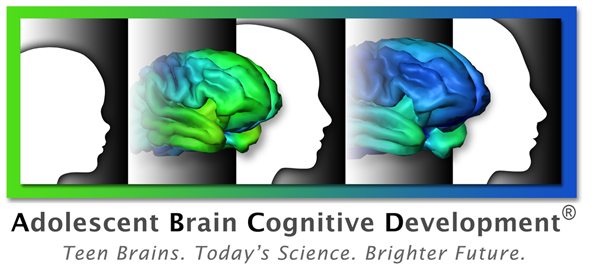Adolescent Brain Cognitive Development (ABCD) Study

The Center for Human Development at UC San Diego is the home of the Coordinating Center for the Adolescent Brain Cognitive Development (ABCD) Study, the largest long-term study of brain development and child health in the United States. In 2015, the National Institutes of Health (NIH) funded leading researchers in the fields of adolescent development and neuroscience to conduct this ambitious project.
The ABCD Research Consortium consists of a Coordinating Center, a Data Analysis, Informatics and Resource Center, and 21 research sites across the country, which enrolled 11,880 children ages 9-10 to join the study. Researchers expect to track their biological and behavioral development through adolescence into young adulthood.
Using cutting-edge technology, scientists will determine how childhood experiences (such as sports, videogames, social media, unhealthy sleep patterns, and smoking) interact with each other and with a child’s changing biology to affect brain development and social, behavioral, academic, health, and other outcomes. The results of the ABCD Study will provide families; school superintendents, principals, and teachers; health professionals; and policymakers with practical information to promote the health, well-being, and success of children.
Data Sharing
One goal of the multisite longitudinal ABCD Study is to create a unique data resource for the entire scientific community by embracing an open science model. The ABCD Study began releasing curated, de-identified data annually, beginning in 2018, to the research community. Information on how to access ABCD data through the NIMH Data Archive (NDA) is available on the data sharing page on the ABCD Study website.
Principal Investigators (ABCD Study Coordinating Center)
Terry L. Jernigan & Sandra A. Brown
Website
Contact